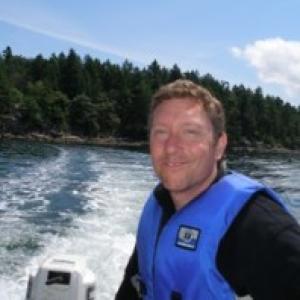Constructed Coastlines of the Salish Sea: Integrating Archaeological, Indigenous, and Ecological Perspectives
Prior to contact with Euro-Americans, the Salish Sea was anything but a natural place. Rather, its coastscapes were profoundly anthropogenic, having been constructed, engineered and managed by Indigenous peoples over the Holocene. I first cover the archaeological record that supports this assertion, focusing on my research in the southern Gulf Islands of British Columbia. Second, I consider the social dimensions to how landscape construction and resource management systems operated in the past. Third, I bring these notions forward into the present and future, showing how an understanding of such long-term practices can directly inform how we effect the ecological recovery of Puget Sound and the Salish Sea. My take away message is that the future of the Salish Sea rests directly on our collective knowledge of its past.
For Winter Quarter 2020 Huxley College is collaborating with the Salish Sea Institute for the Huxley Speaker Series, with a focus on the Salish Sea.

About the Speaker

Colin Grier is an Associate Professor in the Anthropology Department at the Vancouver campus of Washington State University. Originally from Canada, his archaeological research has focused on Salishan peoples past and present in British Columbia and Washington State. His primary research interests are changing household and community dynamics through the Holocene, the role of resource management systems and landscape construction in shaping Salishan histories, and the way in which we can learn from past cultural practices to reshape our own future.
Environmental Speaker Series
The Environmental Speaker Series is hosted by the College of the Environment at Western Washington University.
The Series is free and open to the public. Talks are held each Thursday at 4:30 pm in Academic Instructional Center West room 204 - AW-204. Talks will also be streamed via zoom. Register with the Alumni Association for the zoom link. Paid parking is available in lot C.
Learn more about the Environmental Speaker Series
Subscribe to the Email List